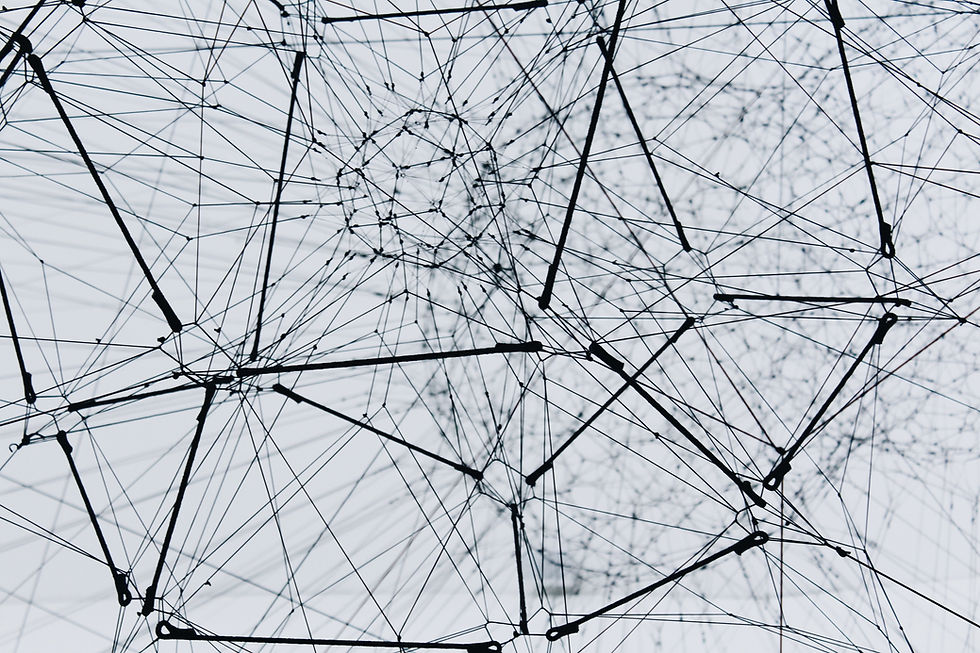Not like the other girls... until I figured this out
- Christiana Tunnicliffe

- Jan 30, 2023
- 3 min read
Updated: Apr 24, 2024
I'm not like other girls... or boys... or just people in general.
I think Autistics find truth in this sentiment. We make up only 2% of the world's population, being constantly surrounded by neurotypicals everyday. It feels isolating, until we recharge in our corners of the internet with our fellow Autistics. Growing up as an Autistic girl, the internet seemed like the only place I'd ever fit in. I felt I wasn't like the other girls around me in my life.
Excluded by the uniform
Every person has experience either trying to conform to or break out of a gender identity that's been put on them. As an Autistic woman who likes to present a traditionally feminine look, clothing is a big part of why I've often felt different. Most of the fashion for female bodies is often tight fabric, such as skinny jeans and leggings.
With the rise of social media came makeup influencers, who often seem so comfortable in things like false eyelashes. I would rather jump into lava then put those fuzzy caterpillars on my eyes! It's hard to feel like you fit into a gender norm when sensory issues get in the way.
Excluded by the science
Of course, gender identity goes much deeper than physical appearance. I grew up under Baron-Cohen's extreme male brain theory, which was the idea that Autistic brains are somehow naturally more male than female. According to this viewpoint, Autistic girls definitely weren't like other girls, right down to our brain structures.
This was before Jordynn Jack's research demonstrated how the autism assessment criteria contains gendered language, preventing Autistic girls and women from receiving a diagnosis in the first place.
Excluded by the fandoms
When I was 12, I was obsessed with the Jonas Brothers. While this was an expected interest for people my age, other girls were able to balance their love for boy bands with their daily lives. For me, it was JoBros 24/7, 365 days a year. My brain literally would not let me talk about anything else, whereas my peers did not have their brains overrun by their interest. The kids around me did not appreciate my enthusiastic dedication. So even when I liked the same things as other girls, I still didn't fit in. It was not what I liked, but how much I liked it that led me to being teased.
Different is the new same
As I've come into my own person, I've had the agency to embrace the gender norms I want and to shrug off any that don't compute with my neurotype. Finding really soft leggings and specific styles of jeans has allowed me to express myself through my clothes. I've found ways to uphold a feminine look without it being too itchy or clingy. I also learned that not every makeup YouTuber enjoys wearing false eyelashes (thanks Allie Glines!) and each have their own personal tastes, which made me feel validated.
As I learned more about the intersections of autism and gender, I realized that my brain isn't working against my gender at all. Rather, society was trying to ascribe a gender to how my brain functions.
Yet, I still struggle with this feeling that I am not like other girls--until I remember that we really are all different. No two people are like each other, and that's beautiful! What I need to belong is not to be surrounded by people exactly like me, but to be around people who are eager to embrace my differences. I am happy to meet individuals from all gender backgrounds who are making efforts to include me and other Autistics in their social spheres.
I am not like most girls, but I can be included by most girls. And that's more than enough for me.
Autism Personal Coach celebrates the intersectional nature of Autistic identities. We host free monthly support groups for trans/LGBT and Black/Indigenous/POC individuals. Additionally, each of our Coaches is well-informed or has first-hand experience in how identities are further shaped by growing up female-assigned, undiagnosed, or multiply Disabled.
An autism life coach can help you to understand and embrace your own Autistic identity. That can have a huge impact on your wellbeing--contact us to get started!




Comments